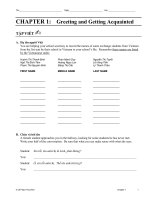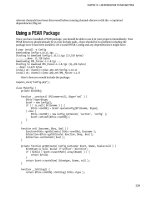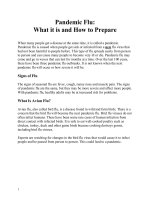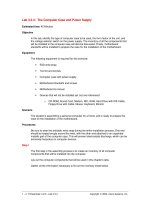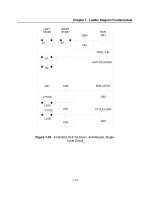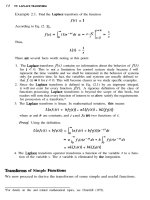Tài liệu Meet Madonna Soctomah and David Francis pptx
Bạn đang xem bản rút gọn của tài liệu. Xem và tải ngay bản đầy đủ của tài liệu tại đây (219.05 KB, 2 trang )
Meet Madonna Soctomah and David Francis
Madonna Soctomah
Madonna Soctomah’s passion is the Passamaquoddy language—hearing it, teaching it and
speaking it. Born and raised on the Sipayik Reservation at Pleasant Point, Madonna spoke only
Passamaquoddy until age ve when she began attending St. Ann’s Catholic School. She later went
to Shead High School in nearby Eastport, where she found herself speaking less and less of her
beloved Native language and more and more English. After high school, she attended college
in Bangor, and then traveled around the world to places as far away as Beijing, China. One day,
while living in Hawaii, far away from Maine, Madonna’s phone rang. When she picked it up
and said hello, Madonna heard something she had not heard in years—the sound of her Native
language, being spoken by a Passamaquoddy friend visiting Hawaii. It brought tears to her eyes!
Since then, Madonna has worked for many years within and for her community. She has been
a health administrator at the Pleasant Point and Indian Township health centers, a member of
tribal council, and has served as the Passamaquoddy tribal representative to the Maine State
Legislature. Now that she is retired, Madonna works on projects close to her heart: teaching the
Passamaquoddy language. One of her current interests is the “Passamaquoddy Transformers
Theater,” a drama group that creates interactive plays about Passamaquoddy language and culture.
David Francis
David Francis may be a quiet man, but he certainly has a lot to say—and he can say it in more
than one language. How did Mr. Francis become interested in language? Sixty years ago,
a young David Francis joined the U.S. Army to ght in World War II. He was a Native
Passamaquoddy speaker with little experience speaking English. Mr. Francis describes his time
in the Army as ve years “with no one to speak [Passamaquoddy] to.”
However, Mr. Francis went on to master another language in the Army—Morse code, which he
used during the frequent power outages to send important communications for food, water and
ammunition.
Thirty years ago, Mr. Francis took a language class at the University of New Brunswick with a
linguist named Robert Leavitt. This class marked an important partnership between the two men.
Today, they are the co-editors-in-chief of the Maliseet-Passamqauoddy dictionary, a 30,000-
word dictionary of the Passamaquoddy-Maliseet language. A condensed, on-line version of the
dictionary will link words to sound les of a Native speaker pronouncing the words.
For the past 12 years, Mr. Francis has been compiling, editing and recording words in his Native
language, Passamaquoddy. You can usually nd him behind his computer at the Wapohnahki
Museum and Resource Center at Sipayik, where he works daily editing the dictionary.
Meet Madonna Soctomah and David Francis 2
